Academics
Why UMKC School of Dentistry
UMKC School of Dentistry has a tradition of excellence in education and care since 1881.
Fully accredited programs
Our eight academic programs are fully accredited by the American Dental Association’s Commission on Dental Accreditation.
Programs for practitioners
We're the only school in Missouri that offers advanced training in general dentistry and four specialties – endodontics, orthodontics, dentofacial orthopedics and periodontics and oral and maxillofacial surgery.
Active patient base
Our patient base exceeds 60,000 visits per year, so you'll have plenty of opportunity to provide hands-on care.
Home of the Midwest Dental Conference
Every year, our event attracts 3,500 dentists, dental hygienists and oral healthcare leaders to Kansas City.
Extensive alumni network
Almost half of dentists practicing in Missouri and Kansas graduated from the UMKC School of Dentistry, though our alumni are located throughout the United States and the world.
Located in a great city
We are Kansas City’s university blending big-city entertainment with midwestern charm, offering something for everyone from sports fans and aret enthusiasts to foodies and outdoor explorers.
Explore Our Programs
Whether you're starting a career in oral healthcare or are an experienced practitioner, our world-class programs provide a comprehensive education to maximize your career potential.
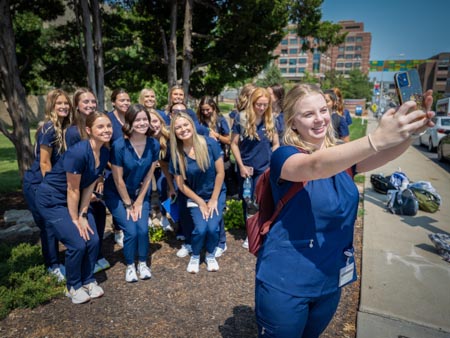
Bachelor of Science in Dental Hygiene
Our dental hygiene program provides a solid clinical foundation for a variety of career paths, including traditional private practice settings, as well as research, teaching, public health, corporate sales, and management positions.
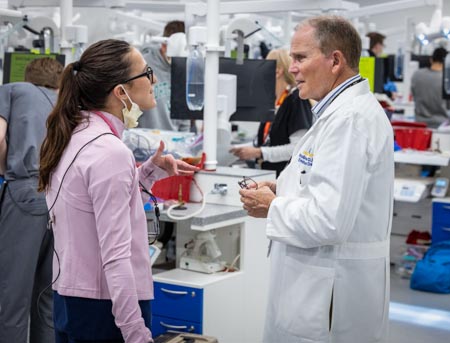
Doctor of Dental Surgery
Our comprehensive Doctor of Dental Surgery (DDS) program provides students with an academic foundation, hands-on clinical experience and confidence to achieve their long-term goal of becoming a dentist.
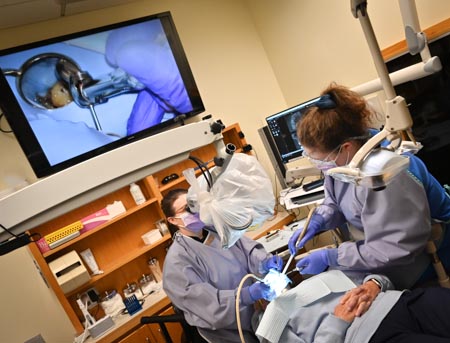
Advanced training
We offer certificates in general dentistry, endodontics, orthodontics and dentofacial orthopedics and periodontics, a residency in oral and maxillofacial surgery and advanced degrees in oral and craniofacial sciences.
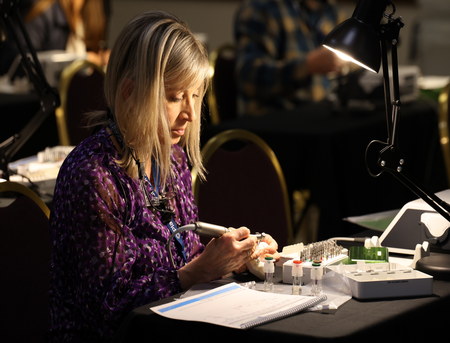
Continuing education
Keep your clinical skills relevant. We offer several online and onsite continuing education programs designed to meet the educational needs of working dental hygienists and dentists.
Jump-Start Your Career in Dentistry
We offer reserved admissions in our dental hygiene and DDS programs, as well as programs and scholarships for those exploring careers in oral healthcare.
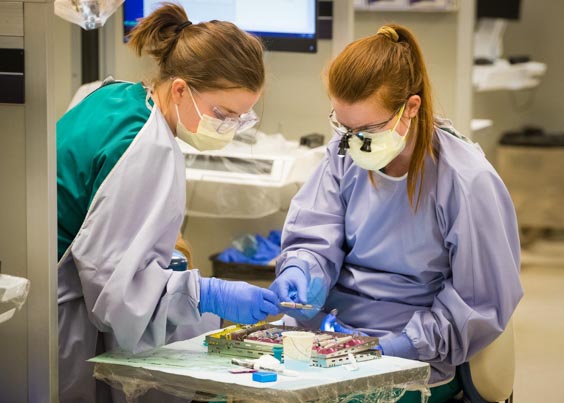
Dental hygiene reserved admissions
Eligible high school seniors can apply directly to the School of Dentistry for a reserved seat in a future dental hygiene class.
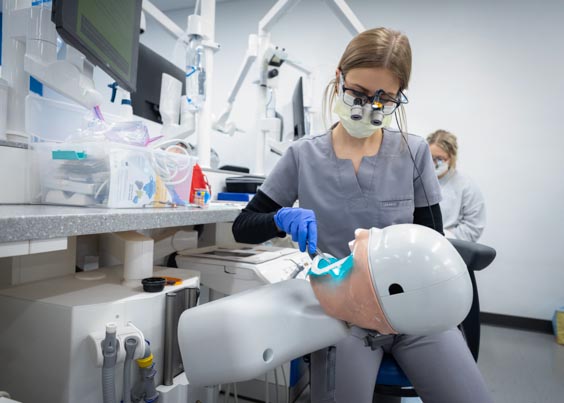
DDS reserved admissions
Eligible college sophomores who are residents of Missouri or Kansas and first-time college students who have completed at least 45 credit hours at UMKC can apply directly to the School of Dentistry for a reserved seat in a future dental class.
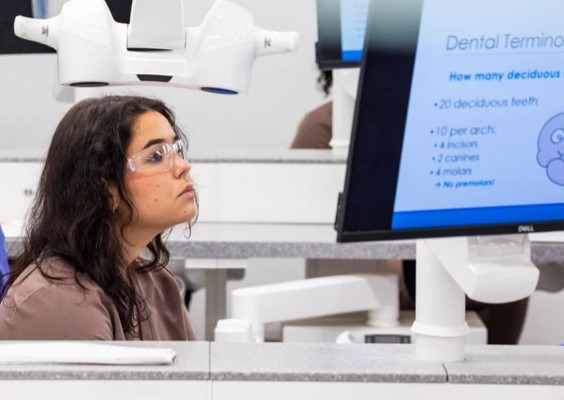
Explore a career in dentistry
Are you a high school or college student interested in becoming a dentist? Get hands-on experience in a dental setting and learn how to become a successful candidate for dental school.
Find Out More About Us
We offer several ways you can explore our dentistry programs to find the one that fits your goals.
Schedule a visit
We offer in-person and virtual tours and visits.
Sign up for student shadowing
Sit chairside with a dental hygiene or DDS student.
Find scholarships
Get help paying for your program.
Connect with an admissions counselor
Have your questions answered by an admissions counselor.